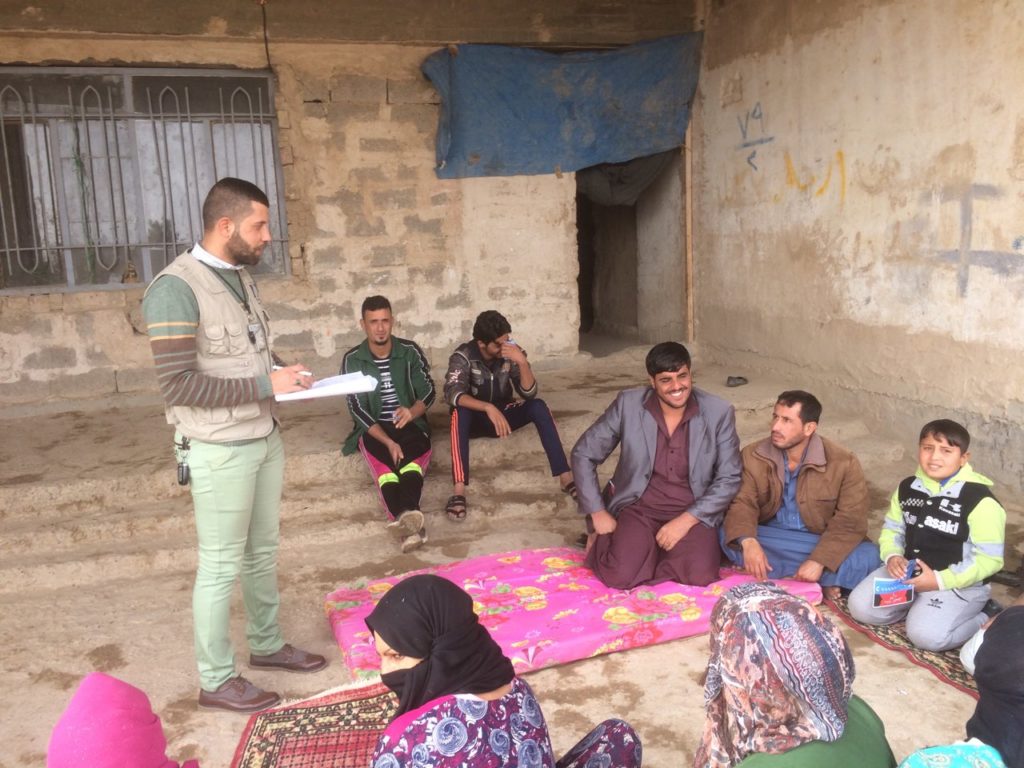Many young people in Iraq have never known peace and security. The 2003 Iraq war was followed by years of sectarian violence that erupted in heavy fighting between the Iraqi military and the Islamic State of Iraq (ISIS) in late 2013. Today, roughly 3 million Iraqis remain internally displaced due to ongoing conflicts, with more and more young people born into lives defined by violence and instability.
Nearly half (45%) of the global burden of disease for young people can be attributed to mental disorders. Yet their mental and emotional needs often go forgotten or ignored in the midst of crisis—leaving them debilitated by traumatic experiences during the most vulnerable time of their lives. In Iraq, there exists an acute shortage of mental health services to help those displaced by conflict cope with stress and uncertainty. International Medical Corps is working hard to fill this troubling gap, led largely by the efforts of Dr. Sarmad Yahia.
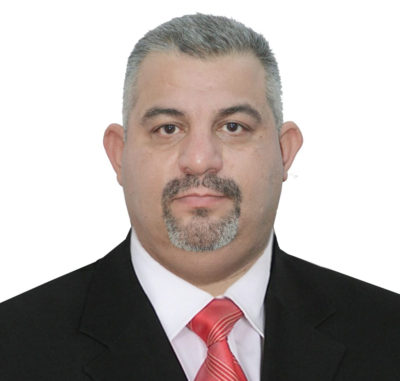
Born in Baghdad, Dr. Yahia spent several years after graduating from medical school working in various fields, including as a military doctor and serving in juvenile courts. He joined International Medical Corps about three years ago in the midst of the ISIS crisis, providing psychiatric treatments for refugees and internally displaced persons (IDPs) on the periphery of Baghdad. “Imagine how miserable they are,” he says of the IDPs. “Imagine living in a house with electricity and water, and—just like that—having to leave everything behind and live in a tent in the desert. What would your feeling be?”
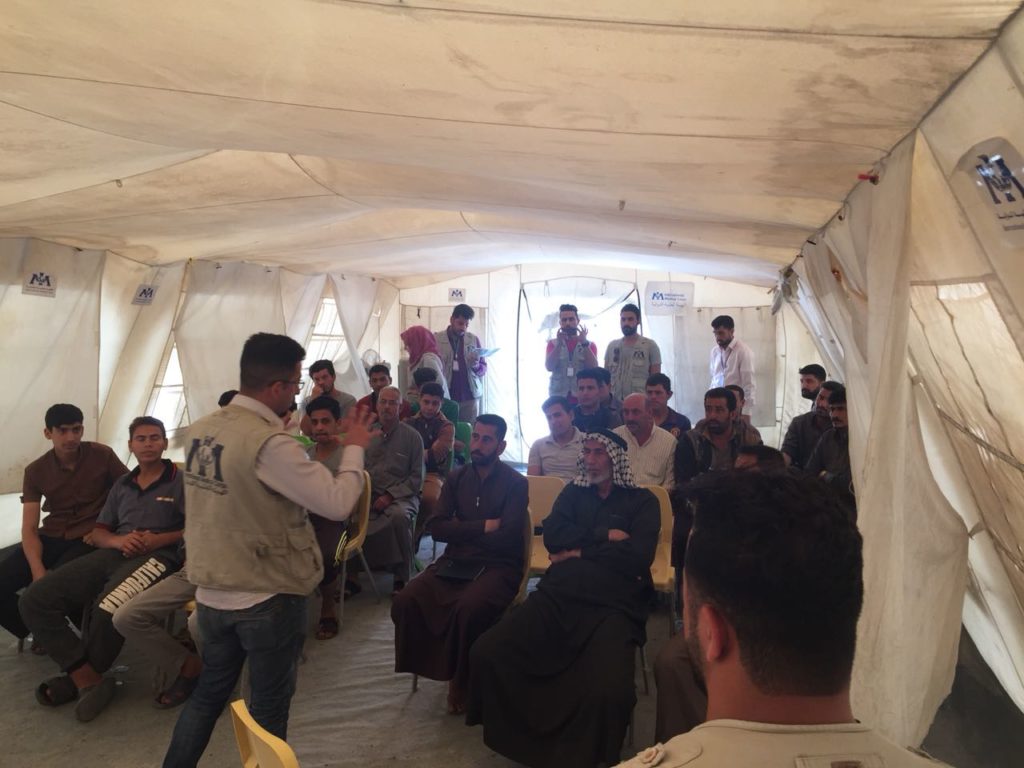
International Medical Corps was one of the first international NGOs to work in the Salah ad Din region, to which IDPs fled because it was a “liberated” and a relatively safer area. For the last several years, he has been the only psychiatrist in the region, working with a team to provide integrated mental health services that include psychiatric consultations, case management and outreach through community health workers. “We are a group,” says Dr. Yahia. “I would not succeed without a case manager or outreach officer—I work with all of them.”
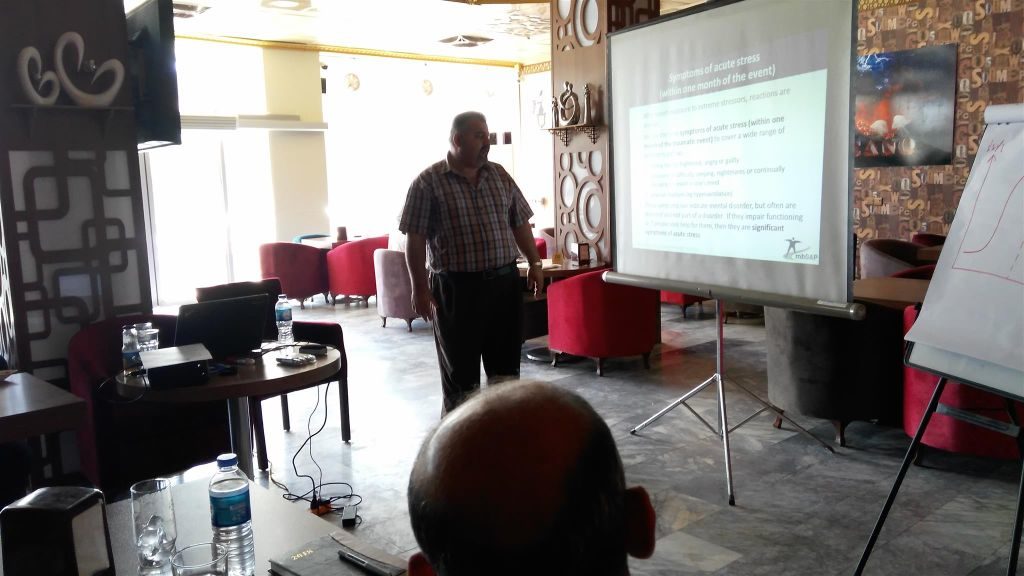
Dr. Yahia and his colleagues are able to provide continuous mental health training in Salah ad Din, thanks to what he attributes to a significant jump in psychiatric quality in the region. He has been asked by the local medical college to train fifth-year medical students, and the local government to continue to fill gaps in providing service. At the national level, International Medical Corps has been helping the Ministry of Health to develop and implement a countrywide mental health and psychosocial support services strategy. Says Dr. Yahia, “So many people have said to us: ‘If you were not here, we would die.’”
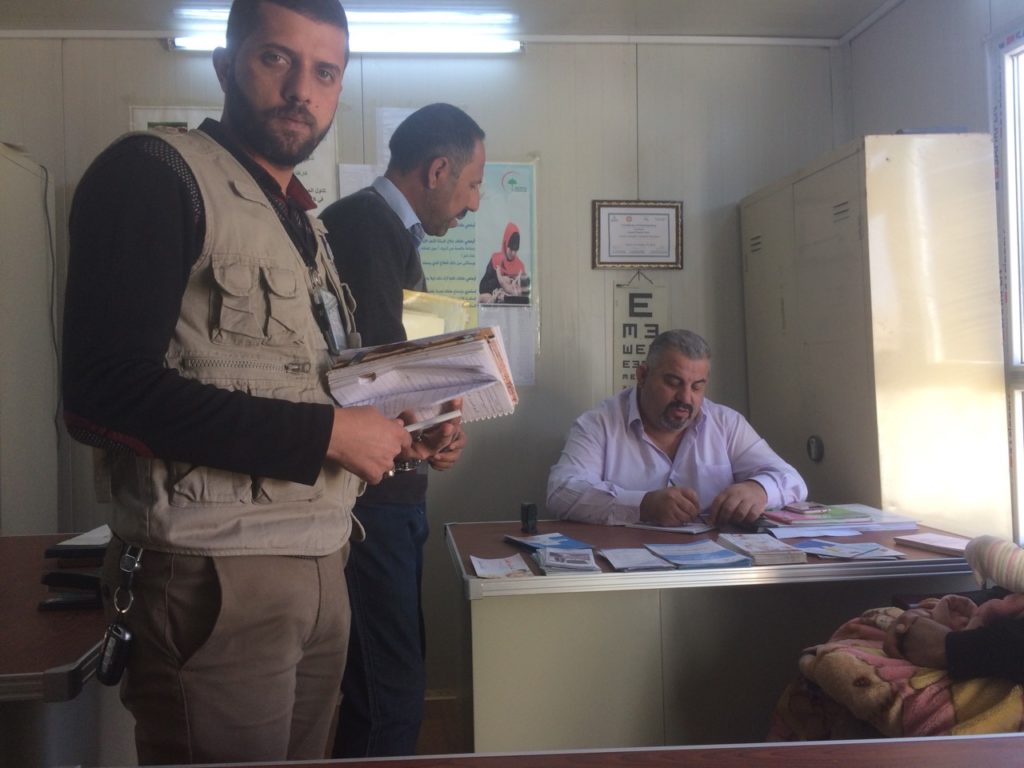
As Dr. Yahia sees firsthand every day, mental and emotional health are critical to the strength of individuals and communities—and lasting resilience comes from the inside out. With youth in particular, he and his colleagues are working against a ticking clock, as young people’s ability to grow into healthy adults depends on their mental health and wellbeing. In Iraq, a lost generation needs deep healing and a chance to build the future it deserves. It needs the support of many more like Dr. Yahia.
International Medical Corps was among the first international NGOs to establish lifesaving humanitarian programs in Iraq in the wake of the 2003 US-led invasion. We have been there ever since and have assisted those in need in all 18 of the country’s governorates. Since 2014, our efforts have focused on meeting the needs of Syrian refugees and conflict-affected Iraqis in northern and central Iraq who are threatened by ongoing violence and insecurity.
